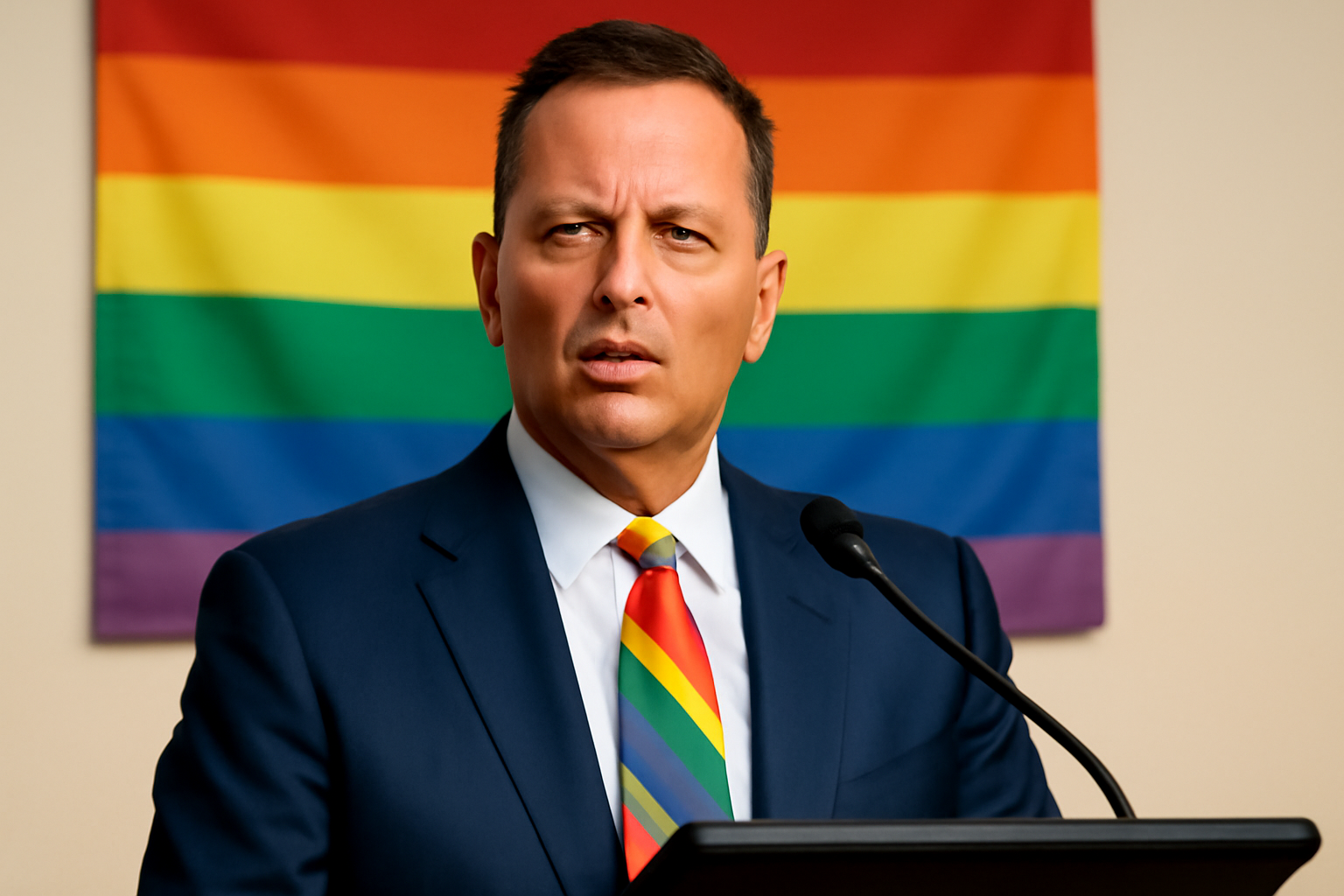
Unexpected Boos at a Prestigious Venue
The Kennedy Center recently became the center of a heated discussion on diversity and inclusion. The controversy arose when Vice President J.D. Vance and his wife Usha faced an unwelcoming reception, marked by boos from the audience during a significant event. This reaction prompted Richard Grenell, the Trump-appointed interim President of the Kennedy Center, to voice his discontent.
Grenell's Response
Following the incident, Grenell communicated with the Kennedy Center staff via email, expressing frustration with the audience's behavior. He emphasized the need for the venue to be a welcoming environment for all, regardless of political affiliation.
He stated, "As the premier arts organization in the United States, the Kennedy Center should be a place where everyone feels welcome. We clearly have work to do in fostering a truly inclusive environment." Grenell's email highlighted his surprise and concern over the audience's reaction to the Vice President, suggesting that the principles of diversity and inclusion had not been upheld.
Call for Inclusivity
Grenell, who values diversity and inclusion, made a public statement underscoring his commitment to these ideals. "Diversity is our strength," he declared. "We must ensure that the Kennedy Center remains a space open to all, regardless of their political views." He called for reflection on the incident and urged the community to improve its inclusivity practices.
On social media, Grenell shared a video of the booing incident, reiterating the necessity for the Kennedy Center to be an environment where diverse voices and perspectives are respected. He expressed disappointment at the perceived lack of tolerance for different political views within the audience.
Historical Context
Grenell, known for being the first openly gay U.S. cabinet official during Trump's administration, has taken a firm stance on issues of inclusion. However, his track record suggests a more complex relationship with marginalized communities. Under Trump’s leadership, the Kennedy Center has made significant changes to its programming, including the cancellation of planned LGBTQ+ events.
The administration's broader policy directives have included efforts to eliminate diversity, equity, and inclusion (DEI) programs from federal institutions. This approach has sparked widespread debate and concern among advocacy groups and communities.
Despite these challenges, Grenell maintains his position at the Kennedy Center and continues to advocate for what he describes as "true inclusivity."
Reflections on Inclusivity
The incident at the Kennedy Center serves as a reminder of the ongoing struggles between different societal values and the challenge of creating genuinely inclusive spaces. The booing of Vice President Vance may have been seen by some as an expression of political dissent, but for Grenell, it highlighted a failure to uphold a broader commitment to diversity.
"We cannot allow intolerance based on political differences," Grenell reiterated, emphasizing that everyone, irrespective of their beliefs, should feel welcome in cultural and artistic spaces.
The Kennedy Center, as a national institution, plays a crucial role in reflecting the country's values. As such, the dialogue surrounding this incident is critical. It raises important questions about how institutions can balance political differences while promoting inclusivity and respect among diverse groups.
Looking Ahead
As the Kennedy Center and its leadership reflect on these events, the broader conversation about diversity and inclusion continues. The goal remains to create spaces where all individuals, regardless of their political, cultural, or social backgrounds, can coexist respectfully and peacefully.
The reactions and responses to this incident will likely influence future policies and practices at the Kennedy Center, as well as other cultural institutions striving to navigate the complexities of inclusivity in today's polarized climate.
Ultimately, the Kennedy Center incident underscores the ongoing need for dialogue and action to ensure that all voices are heard and respected, paving the way for a more inclusive and equitable society.
Related Posts
Pride Month in Latin America: Protests and Demands for Equality
**Celebrating Pride and advocating LGBTQ+ rights in Latin America** Pride Month in Latin America was a lively mix where celebration met activism. Communities united, not just throwing a party but making a stand—demanding equality and pushing governments toward better protection and rights recognition. Throughout Latin America, pride events erupted in marches and cultural displays, each with a c [...]
Transgender Erasure Actions Implemented by National Park Service
```html Trump administration's impact on national park service and transgender recognition The Trump administration made notable moves in undermining transgender representation, which included directing agencies like National Park Service not include "T" and "Q" when they refered “LGBTQ” in any official communication. This move seems part a broader plan by this administration aimed at reducin [...]
Drag Night Extravaganza: Daddies & Baddies at Atlantic City's Anchor Rock Club
Atlantic City, NJ, isn't just about its casinos and boardwalk—it's a hub bursting with energy and entertainment. One event that truly captures this spirit? The "Daddies & Baddies" drag night at Anchor Rock Club. This vibrant night celebrates amateur drag in all its glory, offering a kaleidoscope display where creativity and community unite. If you're looking where inclusivity and creativity take [...]